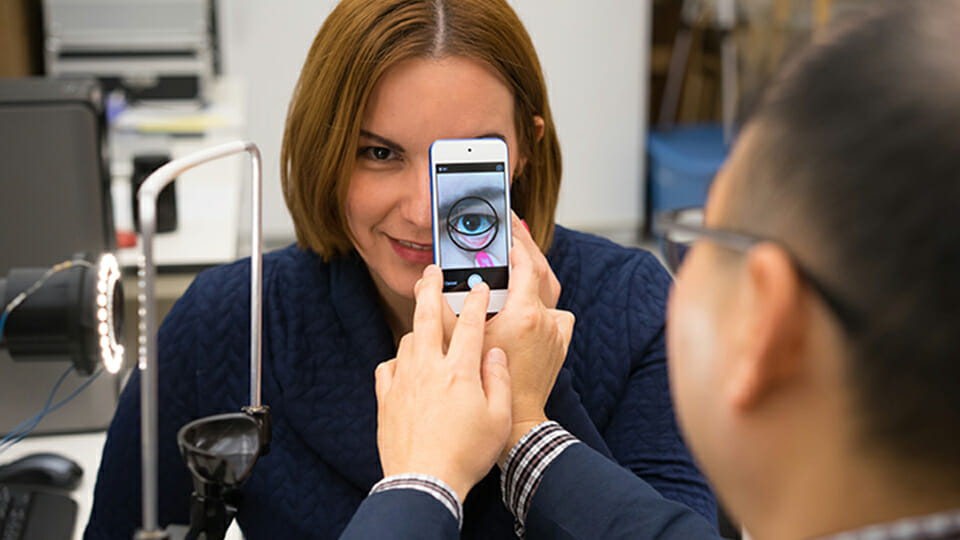Smartphone app for blood hemoglobin testing earns top honors
Subscriber Benefit
As a subscriber you can listen to articles at work, in the car, or while you work out. Subscribe Now
Technology that measures blood hemoglobin through a smartphone has earned top honors for a Purdue University biomedical engineering researcher. Professor Young Kim, founder and chief science officer of digital health startup HemaChrome, won phase 1 of the National Institutes of Health’s RADx Tech for Maternal Health Challenge.
The system uses a smartphone to noninvasively measure blood hemoglobin levels, an indicator of a variety of diseases and disorders.
“Conventional blood hemoglobin tests are usually conducted by invasive and expensive venous blood draws, which require sophisticated equipment, highly trained experts to run the tests and patients who must be present on-site with their health care provider,” said Kim.
The app allows a non-clinical person to use a smartphone to take an image of a patient’s eye that can be analyzed by a healthcare provider. Kim says hemoglobin tests are among the most common laboratory tests conducted among obstetric patients.
“Our simple app is intended to eliminate these barriers and make these tests accessible to everyone, especially those in health care deserts, by allowing clinicians to conduct point-of-care, home-based and remote diagnostic tests on their patients at a fraction of the cost,” said Kim.
Purdue says during phase 1 of the challenge, HemaChrome received a cash prize and was vetted by NIH’s panel of scientific, medical and business experts for technical and commercial viability. After winning the competition, HemaChrome will have access to NIH’s in-house and in-kind support to speed the development, validation and commercialization of its technology.
“Because the process to receive federal funding and support is highly competitive, winning phase 1 of the challenge has strengthened HemaChrome’s resolve to bring our solution to market to benefit those without sufficient health care access who need it most,” said Kim.
